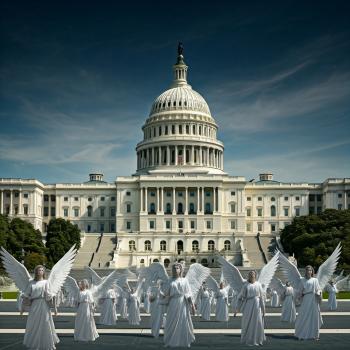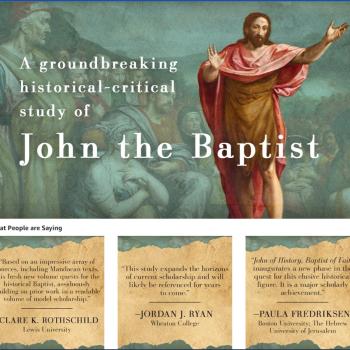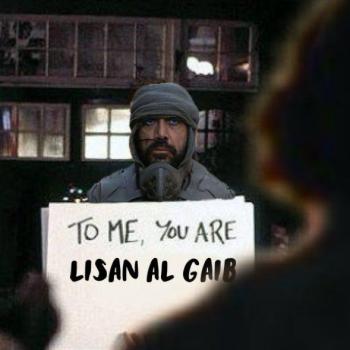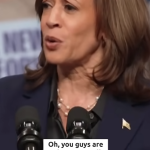I never thought I’d say this, but America might be better off if it had more prominent Fascist and Communist parties. In most European countries there are more than two parties that have a serious chance of having someone represented to parliament or an equivalent representative body, and the prime minister is usually the representative of the party with the most seats. In most European countries, the major “conservative” and “liberal” parties are aware not only that they are to the right or left of another major party, but also that they have other parties on their other flank as well. In other words, in the UK for instance, both Labor and the Tories know that they do not represent extreme positions on opposite ends of the spectrum.
Because in the United States we have two main parties, extremists who want to have a serious chance of election will tend to find room for themselves among either the Republicans or the Democrats. The result is that this pulls each party further along towards an extreme than it might otherwise be. If the views of more extreme positions had parties more clearly connected with their chosen identity, there would be less confusion, and less likelihood of centrist parties being connected with extremism. There would also be more recognition of the need for cross-party cooperation, as few parties in Europe have a clear majority of the votes, and so they have to form governments in alliance and collaboration with other parties.
Our justice system regularly intervenes to prevent unfair monopolies from strangling the competition that is required for a healthy market. I wonder whether they could do something similar in the political realm and break up the political parties that monopolize American politics.
I was once asked (in a job interview for a faculty position at a seminary), because I seem to like the ‘middle of the road’ position on many things, what if anything I get excited about. I thought it was a great question, and I would still answer it the same way now as I did then: I am excited about finding and maintaining the middle ground. Being an extremist is easy; keeping balance is far more challenging. My approach to theology, I realized, has a lot in common with the music I tend to like most, that of the Late Romantic era. It is music that is refusing to renounce being melodic, but is being daring with the harmonies. Finding a way to be genuinely Christian and contemporary, finding ways to do things that are good for both the poor and for the economy as a whole – those are challenges that take creative thinking and hard work. Picking one and ignoring the other is easy by comparison.
The Buddha spoke of the middle path. Jesus spoke of the narrow way. I am inclined to envisage the narrow way as one that runs right down the middle of the broader thoroughfare. We most often hear warnings about the “slippery slope” from people who are persuaded they occupy the moral high ground, who claim that once you lose it, you will be with the godless liberals and atheists at the bottom of the cliff face, wishing you could get back up, but unable to. In reality, it seems more plausible to envisage a narrow road with a slope on either side, so that the closer you get to the edges, the more likely you will slip down the sides. The image here is of a stable middle ground between extremes that represent the ‘low points’ towards which one “gravitates” unless one is determined to keep to the middle and maintain balance.
I don’t know if I’m trying to start a movement. I certainly am not the one to get an organization started (since organization, although in this instance a noun, has a related verb which does not, for the most part, characterize me). But I am hoping to start a conversation. I’m trying to occupy the “radical middle”, and I mean it seriously when I say this is radical. If you are an extremist, you have critics largely on one side, and you are probably so far away from them in your presuppositions that none of their criticisms will carry any weight – assuming any of them take you seriously enough to engage you in discussion. For those in the middle, criticisms will come from both sides, and the criticisms will often have points that we can and should learn from.
Maintaining balance takes challenge, whether you are walking a tight rope, riding a bike, governing a country or formulating ways to express your faith. If those who are passionate about the middle (whether politically or theologically) united in some public and organized fashion, and work together, what might be accomplished?
[Finally, to give credit where credit is due, the reference to the “radical middle” in the title is inspired by a phrase used by Gary Eberle, whose book Dangerous Words I mentioned recently. Given the emphasis on the meaning of words in that book, I do wish to clarify that I did not understand Eberla to be applying the phrase to anything other than the religious/theological middle. Any criticism of its application to a wider range of subjects should thus be directed at me!]
















